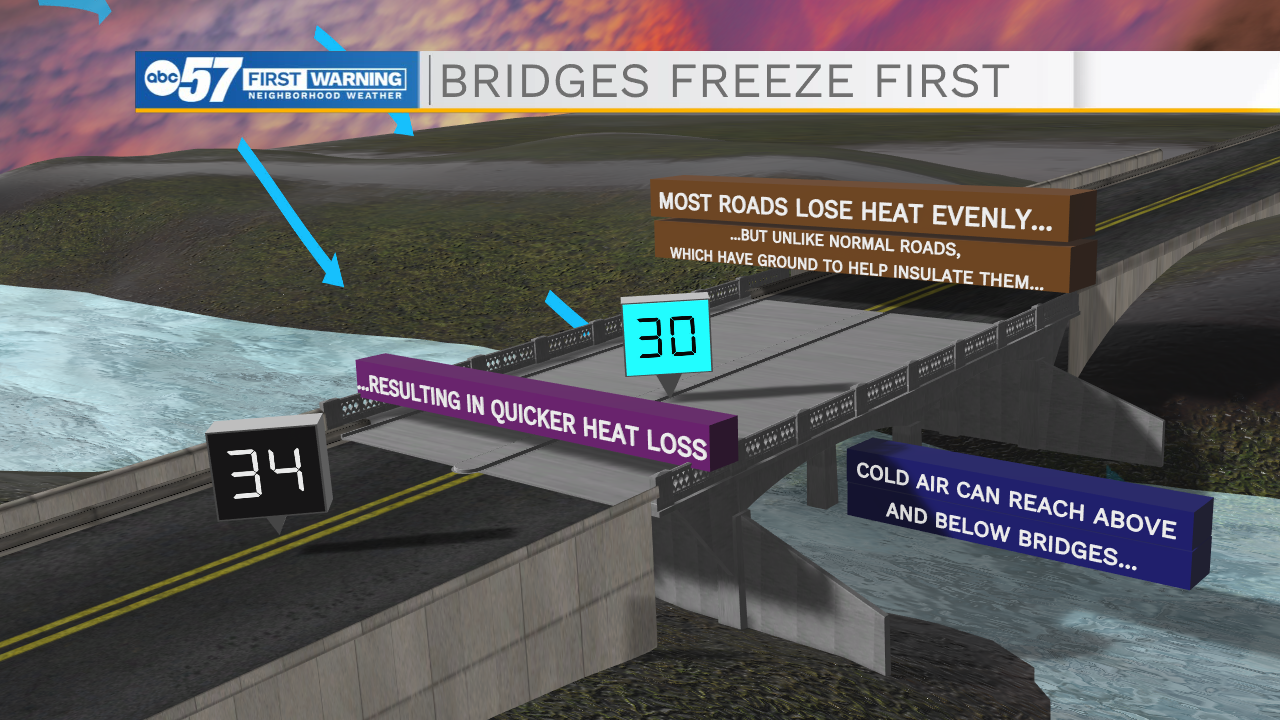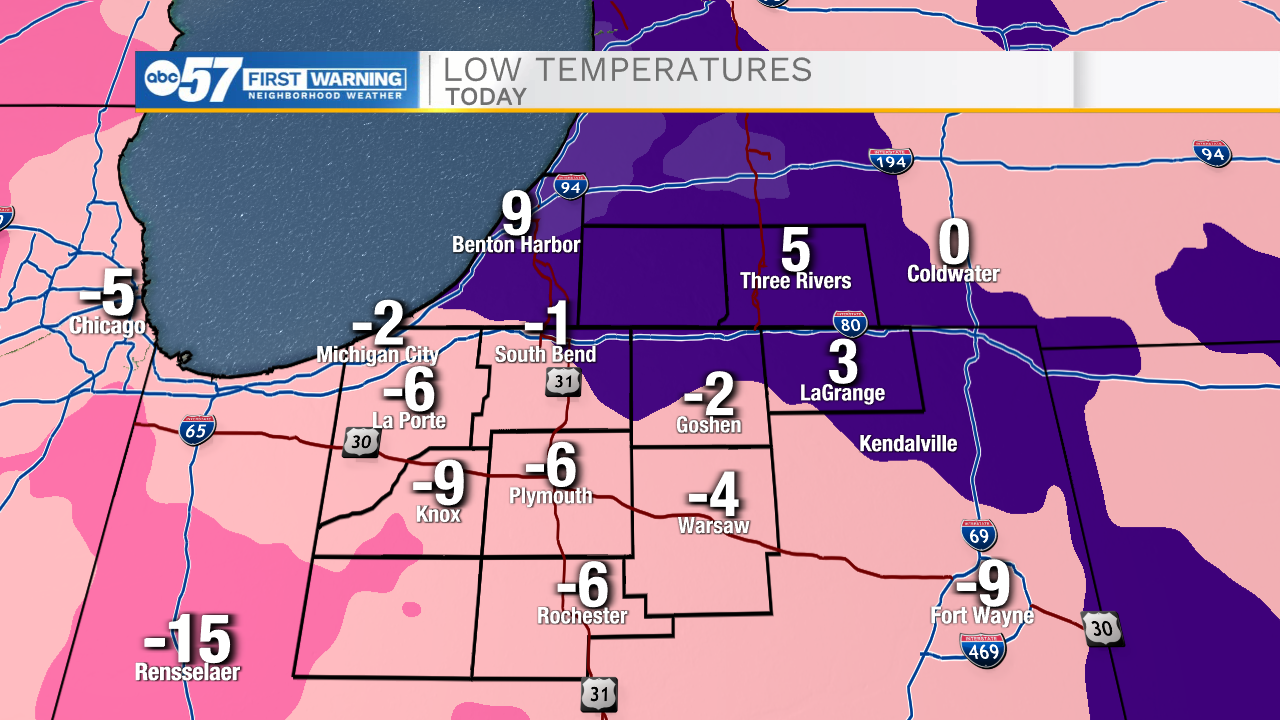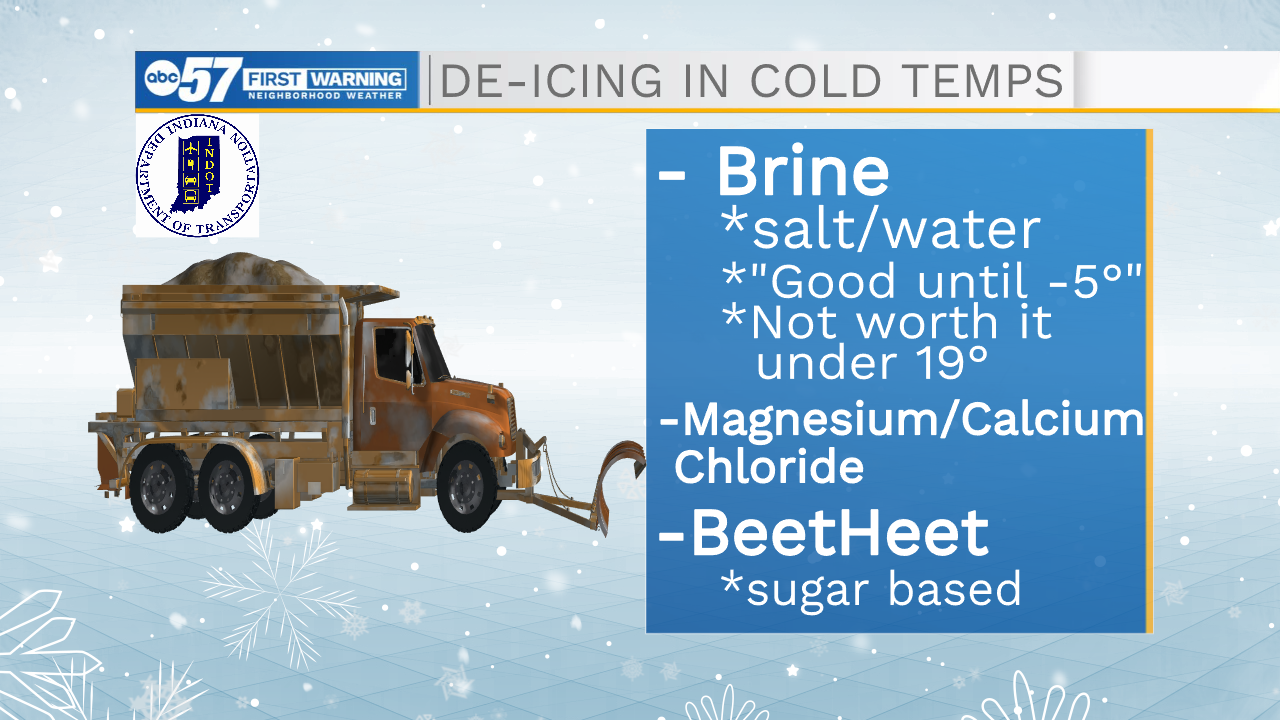Usually, a dusting of snow wouldn't be a concern for Michiana drivers or roads crews trying to make things less slick outside.
However, when you factor in sub-zero temperatures, it can make road conditions treacherous at lightning speed.
Some Michiana drivers saw this first-hand Wednesday, when a chain-reaction crash forced a semi-truck to hang off an overpass on the Indiana Toll Road for hours.
Latest video from the crash EB on the Toll Road-- semi hanging from overpass at Currant Rd. @ABC57News is on scene bringing you the latest updates pic.twitter.com/piEZFQ9Eer
— Jennifer Lee (@JenniferLeeOnTV) January 26, 2022
A key part of this crash was where it occured: on an overpass.
You've probably seen the signs on the highway that say "bridge freezes before road." There's a scientific reason for this, and it has to do with airflow. Normally, road temperatures cool off fairly evenly. However, with bridges and overpasses, the road temperature is affected not just by the cold air over the road, but also airflow under the road.
This leads to quicker heat loss on elevated roads, and the temperature difference can be dramatic in some cases.
Air temperatures were near zero this morning when the crash occurred.
You might be asking yourself, "why didn't road crews just put down more salt to combat the cold weather?"
Unfortunately, when thermometers dip this low, it's not that simple.
INDOT crews typically use a brine solution to de-ice roadways, made up of about 25 percent salt and 75 percent water. This strategy, however, is ineffective in very cold weather. Typical rock salt loses A LOT of its' power after temperatures dip below 20 degrees.
???SAVE YOUR SALT ???
— Dave Caulfield (@DaveCaulfield_) January 26, 2022
If you're thinking of using salt to de-ice during these #cold temps, think again! Typical rock salt is basically useless when air temps dip below 15° @ABC57News @TomCoomes #inwx #michianawx #miwx pic.twitter.com/3Q7cD7jeBv
Plow crews instead need to use an agro-based solution like BeetHeet (which is sugar based instead of chloride based) or add chemicals like magnesium or calcium chloride to try and break the ice.
However, adding chemicals sometimes can cause additonal problems, as blowing snow or frigid temperatures can cause the solution to stick to roadways and cause more travel headaches for drivers.
Unfortunately, there is really no solution for road crews that cures all icy ailments when temperatures are this cold. So, even if it's not snowing outside or just a light dusting, take it slow out there (especially on bridges and overpasses)!

















